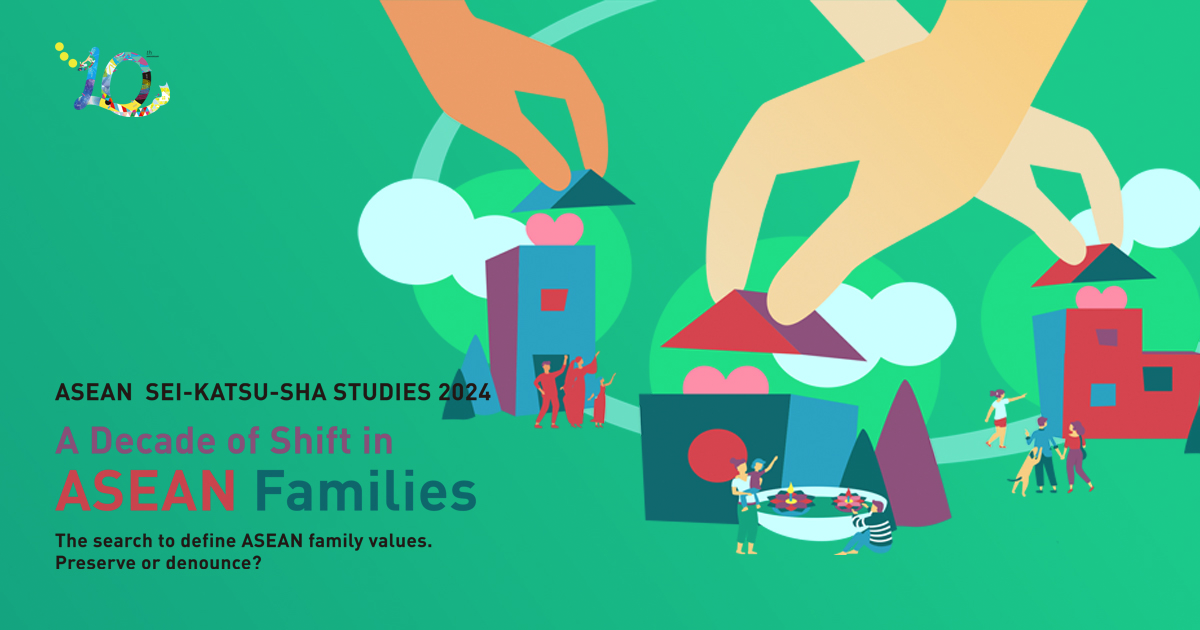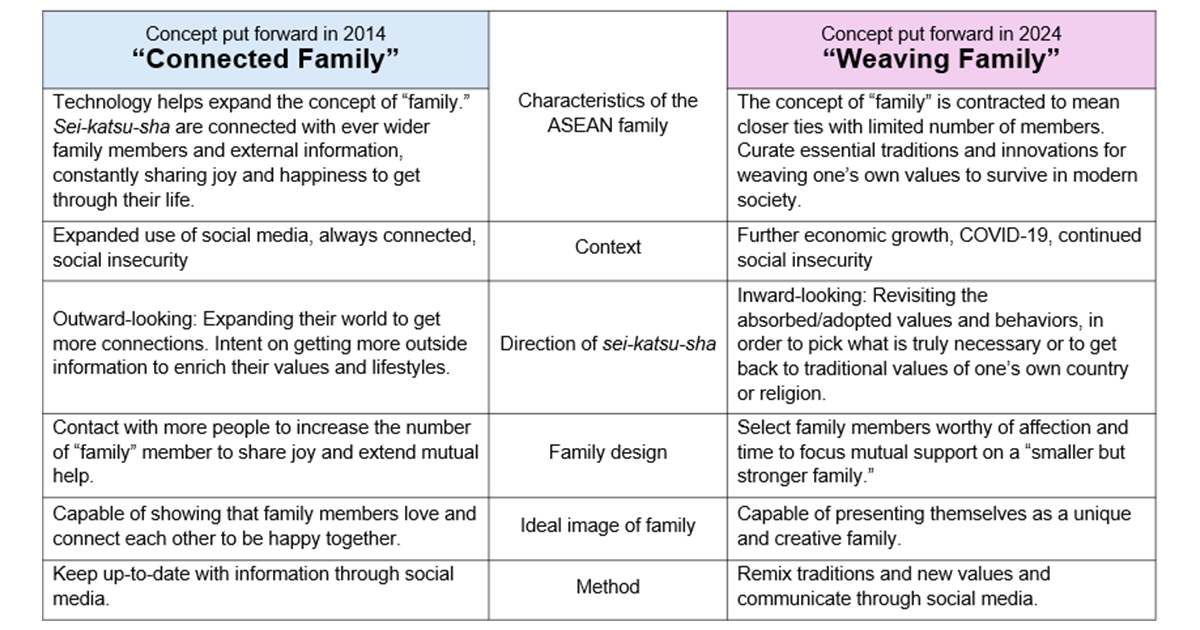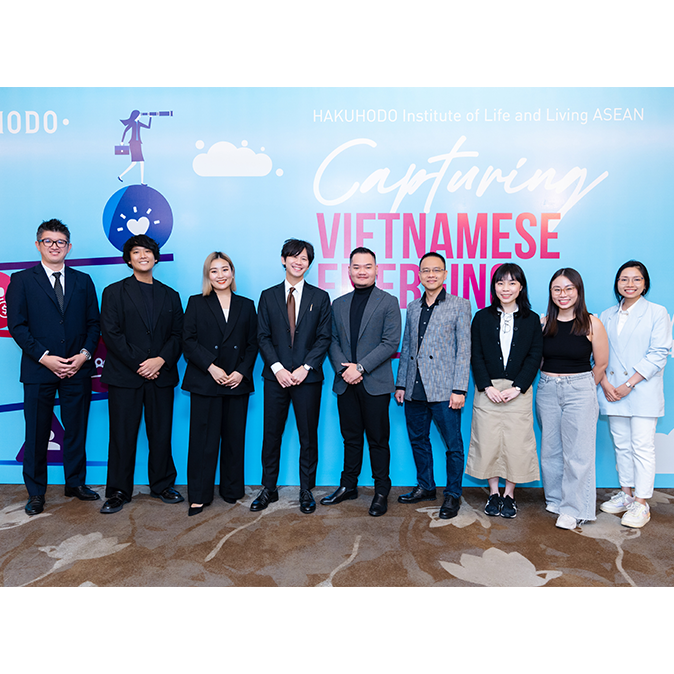- News
- Events
- Research
- HILL
Hakuhodo Institute of Life and Living ASEAN presents ASEAN Sei-katsu-sha Studies 2024
A Decade of Shift in ASEAN Families: Weaving Family
Forming original values with advanced behavior style and traditional family conception
Tokyo—June 27, 2023— Hakuhodo Institute of Life and Living ASEAN (HILL ASEAN) held ASEAN SEI-KATSU-SHA FORUM 2024 in Jakarta, Indonesia, announcing findings from surveys and research into the attitudes and behavior of ASEAN sei-katsu-sha —Hakuhodo’s term for the holistic person—under the theme of “The ASEAN Family.”
Founded in 2014, HILL ASEAN marks its 10th anniversary this year. In that inaugural year, we also conducted research under the same theme of ASEAN families, presenting our finding that the ASEAN family was enjoying real-time communication by constantly going online, facilitated by the advancement of technology and the rapid expansion of SNS.
Ten years on, we again performed quantitative and home visit surveys in six ASEAN countries (Thailand, Indonesia, Vietnam, the Philippines, Malaysia and Singapore) to see how the ASEAN family has changed over the years. Our findings show the realities of the ASEAN family building its own value on the “family first” principle, striking a balance between “emerging values” (newly adopted values in contact with global information and values) and “traditional values” (intrinsic ASEAN values being enhanced or recovered by people revisiting their roots).

Highlights of survey
ASEAN and the “family first” principle
Asked about how the importance of family will change in their country, the share of ASEAN sei-katsu-sha who anticipate an “increase in importance” exceeds that of their Japanese counterparts by almost 30 points.
“Emerging values” in the ASEAN family (newly adopted values in contact with global information and values)
Improved career consciousness
Asked about their image of “ideal men/women,” the shares of both male and female sei-katsu-sha in ASEAN who cited “a man/woman oriented to be successful in his/her career” rose over 10 points vs. 10-years-ago.
Family size tending from expansion to contraction
More than 60% of ASEAN sei-katsu-sha predict that there will be fewer children and fewer family members living in one household going forward.
Respect for personal liberty
ASEAN sei-katsu-sha who want more time to spend alone and those who want more freedom have increased substantially over the 10 years.
“Traditional values” in the ASEAN family (intrinsic ASEAN values being enhanced or recovered by people revisiting their roots)
Power balance in family
In ASEAN countries, husband tends to have more authority than in Japan. People are maintaining order and the relationship of mutual aid by articulating hierarchy among family members.
“Family first” as basis for social trust
In ASEAN, almost 70% of the respondents believe that people who have a good relationship with their family are more likely to be a “good person.” Since having a good family serves as evidence of a good person or social trust, people tend to act with the intention to make their family better, or look better.
Image of the ASEAN family: from Connected Family to Weaving Family
The development and dissemination of technology provides ASEAN sei-katsu-sha with opportunities to make contact with the cultures and values of various countries, effectively enabling them to pick “emerging values” to be embraced and “traditional values” to be cherished.
This year’s research helped us find out the new, resilient values and lifestyles of the ASEAN family, weaving different values on the basis of their long-held “family first” principle. The set of values woven into a unique pattern by each family depending on their priorities, also serves to consolidate and protect family members amid the volatile ASEAN society.
Characteristics of Connected Family in 2014 and Weaving Family in 2024

The flexibility of rebuilding values or revisiting/reevaluating traditional values while embracing new concepts is one of the characteristics of ASEAN sei-katsu-sha. We at HILL ASEAN are of the view that this trend of mixing emerging and traditional values will continue into the future.















